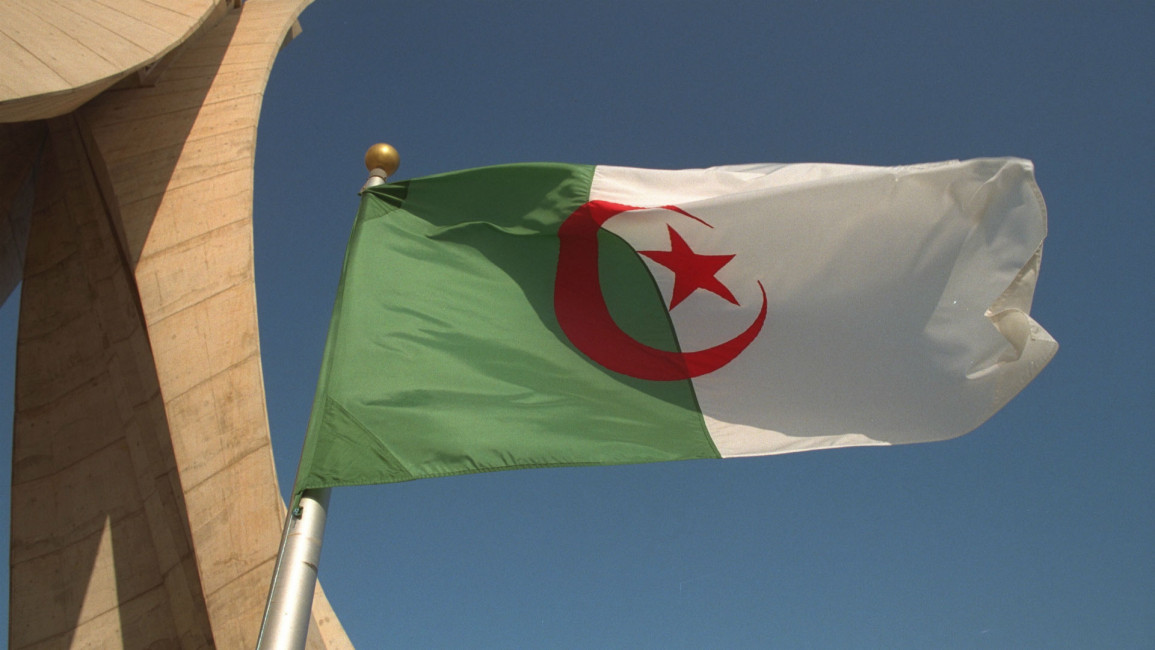Mistaken for a migrant, Black Algerian artist experiences racism on a public tram in Algiers
A black Algerian influencer and artist was reportedly subjected to racial discrimination on a public tram in Algiers after being mistaken for a sub-Saharan migrant. Her story triggered a nationwide conversation about the mounting Negrophobia in the North African country.
Last week, Baraka Merzaia, a 22-year-old artist and student, was on a tram heading to a work event when a public transport employee approached and said in Algerian Darija, "You came to the capital and you became civilised."
Baraka said she was apparently mistaken for a sub-Saharan migrant as the employee did not expect her to understand the local accent.
"The problem is that no one intervened to stop him. Everyone was just watching," she said in tears in a video she shared with her 265,000 followers on Instagram.
Setram Tramway Algeria has yet to comment on the incident.
The young influencer said this is not the first time she faces racial discrimination in public spaces in Algiers. Racial hostility is a daily struggle for many other black Algerians who are forced to navigate Negrophobia and rising anti-migrant hysteria in the country.
Samira, a Black Algerian, said she received the same treatment from an employee at the tramway station. "He told me where you were going, Kahloucha (a racist slur in Algerian Darija). It was very humiliating. I was on the verge of tears," she told The New Arab.
Many Algerians took to social media to show support for Baraka, calling for drastic procedures to dismantle normalised anti-black racism in the country.
Like other North African nations, racism in Algeria is deeply rooted in the country's unresolved history of slavery and oppression against its black community.
Concentrated in the Saharan south of the country, Black Algerians are indigenous to Algeria's Sahara. The history of forced servitude has stigmatised Black Algerians and generated Negrophobia among other Algerian citizens – self-identified white Arabs and Amazighs – who overwhelmingly live along the northern Mediterranean coast.
In 2019, Khadidja Benhamou was the first Miss Algeria from the south of the country. Nevertheless, many Algerians voiced over social media their disapproval of Khadija's win, citing her dark skin colour.
Racism in Algeria is not limited to the few people with unresolved racism and Western beauty standards. It also includes officials and politicians in power.
In 2019, Naïma Salhi, an Algerian politician, attacked the inhabitants of the South, Algeria's black community, whom she described as "tea sellers".
Over the years, the Algerian state's anti-migrant policy has fed the anti-black hysteria in the country.
"These illegally staying foreigners bring crime, drugs and several other scourges," Ahmed Ouyahia, director of the cabinet of President Abdelaziz Bouteflika with the rank of Minister of State, told local media in 2017.
Algeria is home to over 100.000 sub-Saharan migrants. Though only a few thousand have managed to secure refugee status while others continue to live and work in inhuman situations. Only this year, Algeria has expulsed over 9,000 migrants to their countries, according to IOM.
Speaking to several Back Algerians and migrants in the country, they say neighbouring President Kais Saied's racist speech has further accentuated the anti-migrant feelings in Algeria.
Three years ago, the Algerian government drafted a bill "criminalising all forms of racism, regionalism and hate speech in the country." So far, the draft has proved fruitless.


![Bahrain [getty] Bahrain [getty]](/sites/default/files/styles/image_330x185/public/media/images/5F28B59A-942B-4B6A-A5A8-09D476D1E68D.jpg?h=d1cb525d&itok=NJNXWh5z)